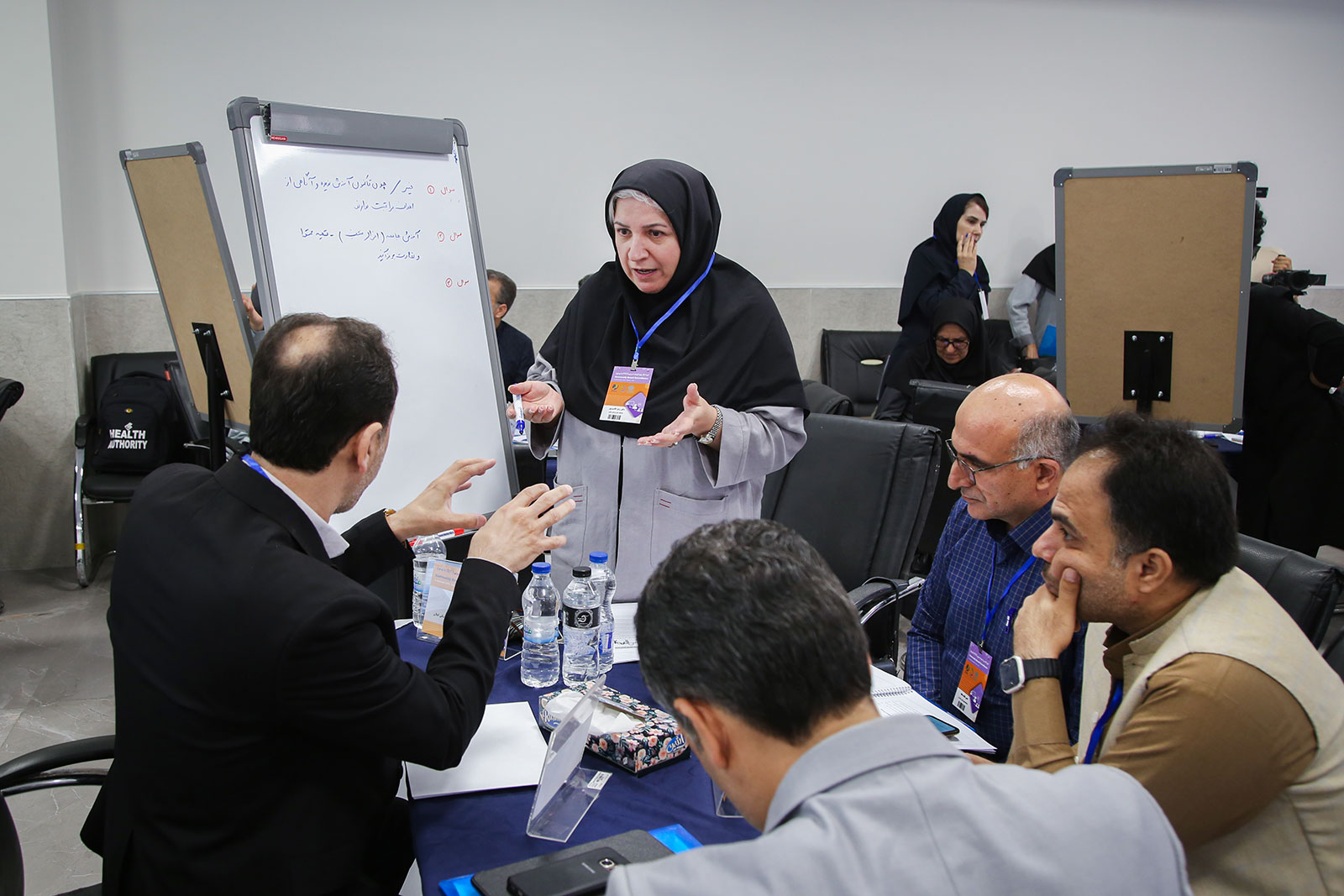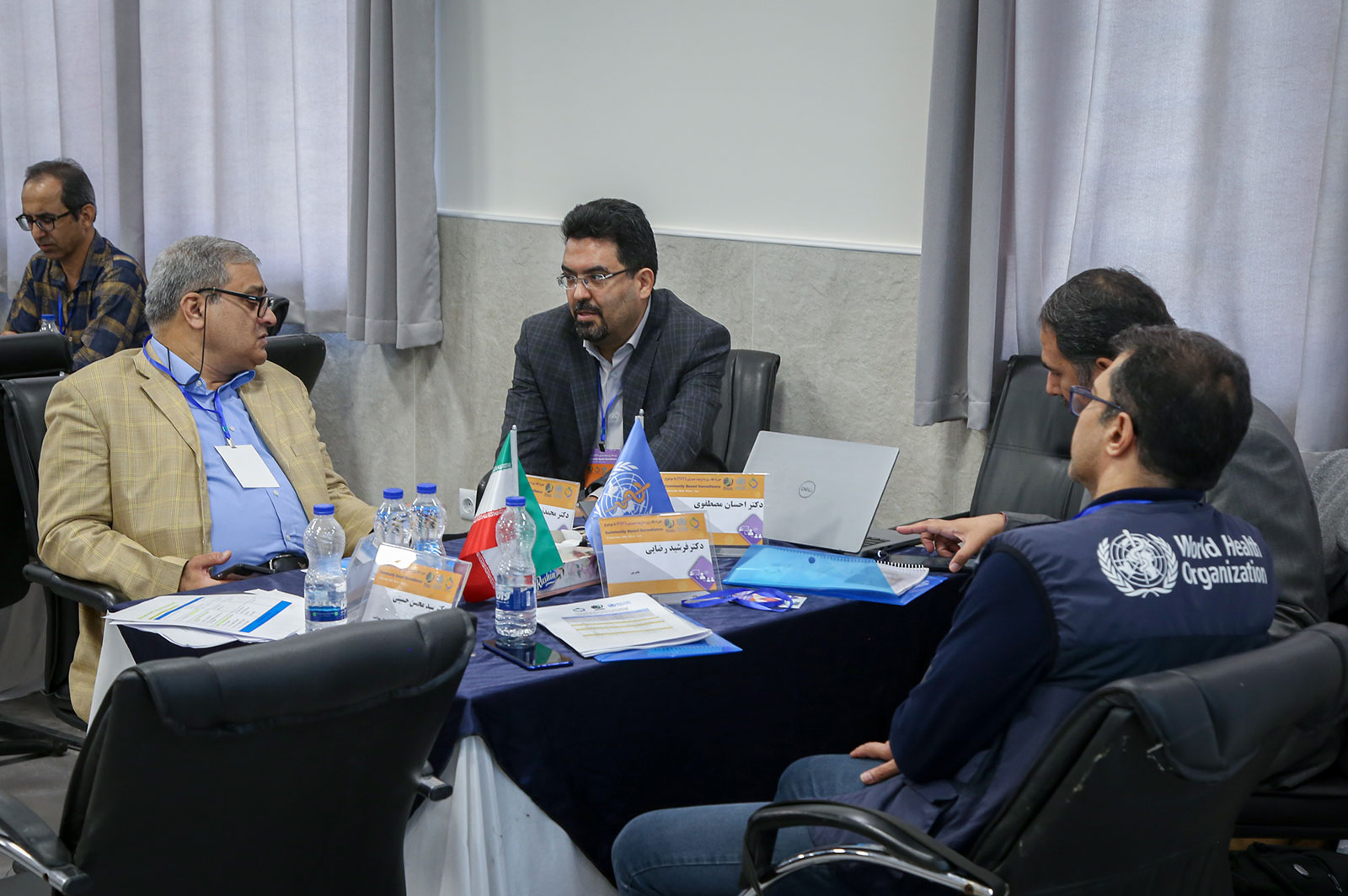 19 September 2024, Tehran, Iran – To strengthen public health resilience, the World Health Organization (WHO) Country Office in the Islamic Republic of Iran, in collaboration with the Iranian Centre for Communicable Disease Control, the Health Promotion Department and the Health Managers Development Institute of the Ministry of Health and Medical Education, conducted a community-based surveillance (CBS) training of trainers (ToT).
19 September 2024, Tehran, Iran – To strengthen public health resilience, the World Health Organization (WHO) Country Office in the Islamic Republic of Iran, in collaboration with the Iranian Centre for Communicable Disease Control, the Health Promotion Department and the Health Managers Development Institute of the Ministry of Health and Medical Education, conducted a community-based surveillance (CBS) training of trainers (ToT).
The initiative, co-funded by the European Union, aims to build the capacities of health facilities, including outreach services, to better prepare and respond to public health emergencies and mitigate multi-hazards among refugee populations in the Islamic Republic of Iran.
The training, held on 14 September 2024, brought together 25 dedicated public health officers from the provinces of Sistan and Balouchistan, Hormozgan, Khorasan, Mazandaran, Guilan, Bushehr and Kerman.
CBS empowers community members to systematically detect and report public health events. By leveraging local networks, it aims to detect, respond to and prevent public health threats.
 During the training, participants learned about the importance of integrating CBS into existing surveillance systems, establishing well-defined reporting mechanisms and implementing effective feedback channels.
During the training, participants learned about the importance of integrating CBS into existing surveillance systems, establishing well-defined reporting mechanisms and implementing effective feedback channels.
The training highlighted how local engagement can lead to more timely and effective public health interventions. By empowering local communities and strengthening surveillance systems, WHO and its partners are taking proactive steps to promote public health resilience in the Islamic republic of Iran. This collaborative effort underscores the importance of community engagement and capacity-building in safeguarding the health of populations.
Equipped with new knowledge and skills, the public health officers who participated in the ToT will train 1800 community health workers in their respective regions. This cascade of training will result in the health system being better prepared to detect public health events early and assess the impact of interventions promptly.
By building on the existing capacities of frontline workers and creating a robust and responsive health surveillance system the initiative aims to improve the health and well-being of the Iranian and Afghan refugee populations.


